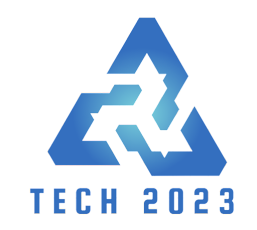The field of technology has been ever-evolving, innovating at a pace that was unimaginable just a few decades ago. The way we live and work has been significantly reshaped as technology continues to infiltrate every aspect of our daily lives. This article, "The Impact of Technology: Revolutionizing the Way We Live and Work," will provide an overview on this topic through an interview-style dialog featuring prominent figures, experts, and thought leaders.
We begin with Bill Gates, co-founder of Microsoft and one of the most influential figures in the tech industry. When asked about how technology has influenced our lives, Gates notes that "technology is now so integrated into our daily routine that it's hard to imagine how we got by without it". From using a PC for work or school tasks to turning on the GPS for directions to a new restaurant or reading news articles online before bed - these are all activities made possible due to technological advancements.
Gates emphasizes that not only has technology made life more convenient but it's also opened up opportunities for people around the world. The Internet alone has created jobs in sectors like e-commerce, digital marketing while making education accessible to those who previously had no access.
A List Of Best Android Apps To Earn Money
Next up is Sheryl Sandberg, COO at Facebook who speaks about how social media platforms have transformed communication. She suggests that platforms like Facebook have allowed people from different corners of the world connect with each other in ways they couldn't before - sharing experiences and ideas at an unprecedented scale.
Elon Musk's perspective adds another dimension as he discusses how tech innovation is shaping transportation and energy sectors. He shares his vision about electric cars becoming mainstream, reducing reliance on fossil fuels, thus contributing towards mitigating climate change issues.
However, not all impacts are positive as pointed out by Tim Berners-Lee, inventor of World Wide Web, who warns us about data privacy concerns which have arisen due to the current level of internet usage. He insists upon users being vigilant regarding what information they share online and companies being transparent about how they use this data.
From the medical field, we have Dr. Eric Topol, a renowned cardiologist and digital medicine researcher. He speaks about how technology has revolutionized healthcare with telemedicine, AI diagnostics tools, and wearable health trackers playing pivotal roles in patient care today.
In the same vein, geneticist J. Craig Venter discusses genome sequencing technologies which have opened up new possibilities in personalized medicine and disease prevention. His work on synthetic biology could potentially change the way we treat diseases in the future.
When it comes to the education sector, Salman Khan, founder of Khan Academy highlights that e-learning platforms are democratizing education, providing learning opportunities to students who might not have access otherwise due to geographical or financial constraints.
Dr. Ruha Benjamin, an Associate Professor at Princeton University focuses on social implications of technology, underlining the potential for bias in AI systems if not checked properly. She advocates for more inclusive design processes ensuring tech benefits society as a whole rather than just a privileged few.
We also hear fromYuval Noah Harari, author of 'Sapiens: A Brief History of Humankind' who warns us about techno-humanism where technology could end up determining human values, thus highlighting ethical considerations around tech development.
These diverse perspectives provide us with a holistic view of the impacts of technology. While it's clear that advancements are reshaping our lives, making them more connected, efficient, and informed, there are also challenges around privacy, bias, and ethics which need to be addressed.
In conclusion, as stated bySundar Pichai, CEO Google, "Technology will continue advancing but it’s important that we steer its course so that everyone can benefit". This sentiment seems to encapsulate the current scenario where while embracing tech innovation we must also ensure its responsible usage ensuring a positive impact for all.





